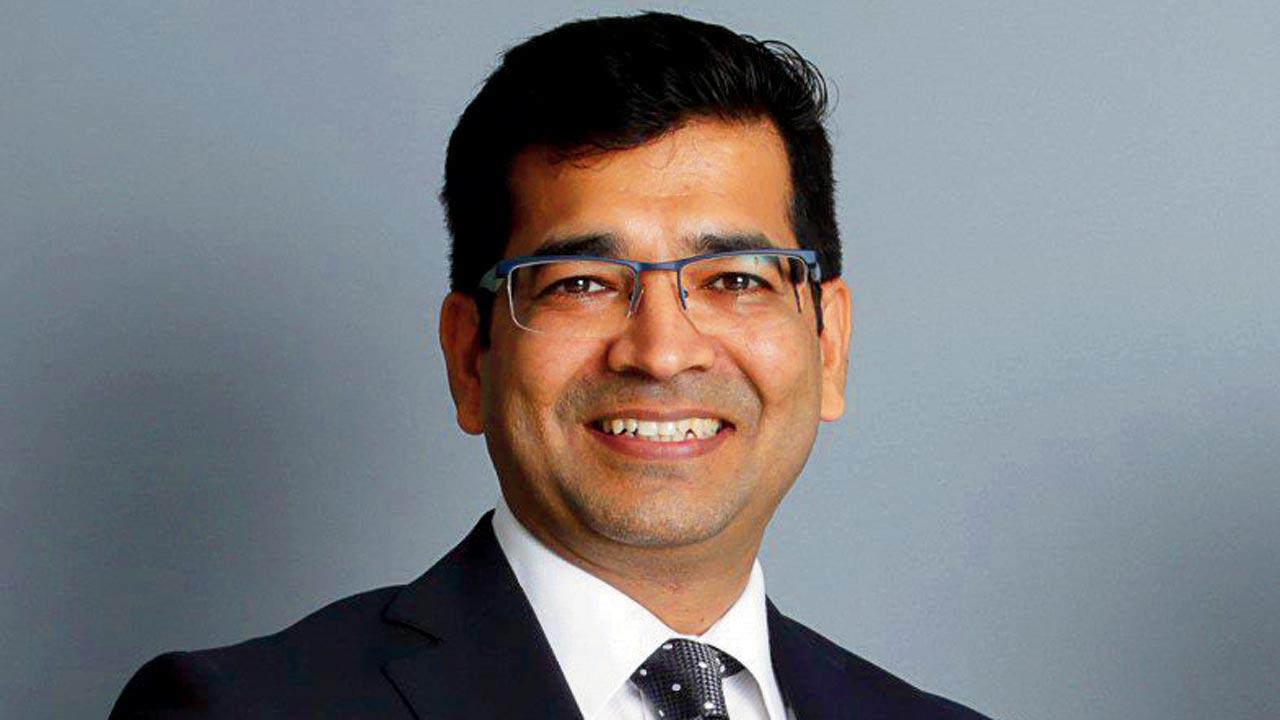In 2021, India’s startup ecosystem became bolder, bigger and richer, as more companies joined the unicorn race. Experts weigh in on why newbie entrepreneurs have nothing to fear as they charge ahead

Sumit Gupta, Vamsi Krishna and Beerud Sheth
Before Vamsi Krishna, along with long-time friends Anand Prakash and Pulkit Jain, started edtech company Vedantu in 2014, they had Lakshya, an educational institute for competitive exams, which he and his fellow IITians began in 2006. Although the institute did well, scaling up was a challenge. With the idea of using technology to scale faster and better, they launched Vedantu, a Bengaluru-based online teaching platform and India’s first to offer online classes, now a part of our daily routine. Challenges were many, remembers Krishna. This was the time when 4G hadn’t yet arrived; their efforts were also directed towards product innovation leading to lowering of prices for students. While growth has been steady since 2017, the pandemic acted as a catalyst, their valuation growing 40 times just in the last two years, as live classes became mainstream. Krishna admits that online education in India has a long way to go, but the fact that this growth has continued even as schools have opened, is a positive sign.
Vedantu is now the 28th Indian startup to enter the unicorn club—privately held startup companies valued at over USD 1 billion—this year, raising USD 100 million in a funding round led by Temasek-backed impact investing fund ABC World Asia. In 2020, 11 startups entered the club, while in 2021, six were crowned in a week and 18 in just the first half. The unprecedented expansion of the market and growth in revenue and investment has led experts to believe that India will have 150 unicorns by 2025. “There is no more doubt that India will be one of the top three ecosystems for startups in the world,” says Pranav Pai, managing partner at 3one4 Capital. “USA is at No 1 with 400 unicorns and USD 100 billion investment every year, China at No 2 with 150 unicorns and USD 40-50 billion investment, and India at No 3 with USD 20-25 billion every year.”
 Vikram Upadhyaya
Vikram Upadhyaya
Factors that have made the market ripe for the rise of these unicorns include the speed and depth of Internet penetration and mobile phones in India in the last decade, an increase in people’s disposable income, the success of payment infrastructure along with an increased access to and comfort with online transactions, and the setting up of venture capital funds in India, along with a very deep talent pool. “Earlier, a significant portion of our best tech talent tended to emigrate, but in this decade a lot more have stayed back because they can now build and join startups,” Pai says. Then, 2020 saw a sudden rise in demand for digital products and services, with people doing everything from paying bills to buying groceries online. “It was a Total Addressable Market (TAM) expansion moment. Small town India, Tier 2 cities became accessible. For instance, Swiggy is now in 500 towns and cities.”
A unicorn valuation motivates, admits Krishna. “When I started my entrepreneurial journey in 2005, there was no such thing in India. Family acceptance of startups is a big challenge,” he shares, explaining how the very first crop of Indian startups like Flipkart gave a huge impetus for many others to start.
 Pranav Pai
Pranav Pai
Apart from inspiration, early startups in India also provided valuable experience. “Many entrepreneurs who have started up over the past few years have worked at older tech unicorns like Flipkart and Ola. They know what it is like to run a high-growth venture,” says Anurag Pandey, co-founder at Nimbbl, an online payments startup, which started last year. Pandey, who worked with Citrus Pay in its early days (acquired by PayU in 2016), says that the startup culture in India has led to a shift in outlook. “We are more accepting of failure than our parents’ generation. If I am interviewing someone and see that they tried to do something of their own and it failed, I am not going to hold it against them. They have taken the risk and initiative, which is great.”
Sumit Gupta, who co-founded the Mumbai-based cryptocurrency exchange CoinDCX with friend Neeraj Khandelwal in 2018, says they deployed about 80-90 per cent of their savings, because at that point investors were not comfortable with the crypto industry. In August, CoinDCX raised USD 90 million (R668 crore) in a Series C funding round at a valuation of USD 1.1 billion, becoming the first Indian cryptocurrency exchange to achieve unicorn status. Despite initial challenges, which included an RBI circular restricting banks from facilitating virtual currency transactions, Gupta and his team have worked with the belief that in the long run the crypto industry will be regulated in India, and they are keen to be one of the players building that ecosystem. “The way we function is that we need to add value to people’s lives. If you are helping them save time and money and gain financial independence, then you are adding value and doing it the right way. If you have an earnest approach to building business and industry through innovation, you will get more acceptance from the industry. From my experience, if you are honest, creating a unicorn is not that big a deal,” says Gupta.
 Edtech startup Vedantu raised $100 million in a new funding round, entering the unicorn club, the 28th startup to do so this year. In the two years of the pandemic, their valuation has grown 40 times, says CEO Vamsi Krishna
Edtech startup Vedantu raised $100 million in a new funding round, entering the unicorn club, the 28th startup to do so this year. In the two years of the pandemic, their valuation has grown 40 times, says CEO Vamsi Krishna
“It takes creativity, innovation, perseverance, rapid execution, customer-focus and a great team,” feels Beerud Sheth, CEO and co-founder of Gupshup, about what it takes to become a unicorn in India. Sheth’s conversational messaging startup raised USD 100 million in funding in April from Tiger Global Management, propelling its valuation to USD 1.4 billion. “Start with a small idea in a big space, prototype quickly, listen carefully to customers, iterate rapidly, get to product market fit, scale incrementally and [have] a lot of patience and grit.”
But in the West, experts have been talking about the unicorn bubble bursting. Commercial real estate company WeWork’s valuation, for example, was under scrutiny. Will it be the same for these Indian startups? “This is not a bubble,” says Pai, speaking of the IPO—initial public offering or stock launch in which shares of a company are sold to institutional and retail investors—movement in India. He explains that just as we use apps for services and products, we can also buy their stocks. “Now citizens are not just their customers, but can also become their shareholders. It’s a very important cultural moment for any ecosystem. We are reaching that moment in India where I use Zomato for my breakfast and I can buy Zomato shares at lunch. There’s a cultural access now for regular Indians, and the demand for the stocks of these technology companies once they go IPO is going to continue increasing, because the future is inevitably a tech-enabled future,” he says.
 Anurag Pandey
Anurag Pandey
The resiliency of these companies is what is going to see them through, he feels. “These companies are raising hundreds of millions while markets are booming. So next year, if the markets undergo a correction again and say no one is investing in these unicorns, most of them have hundreds of millions of dollars on their balance sheets. They can continue investing, marketing, acquiring customers, and building technology. They will not stop their growth. Even when the correction comes, they will be well-prepared to respond and adapt.”
For venture capitalist Vikram Upadhyaya, it is the value these unicorns will create in the long run that will sustain India’s growth story and give birth to more unicorns in the shortest time. “What is important to see is if these unicorns are just valuation creators or also value creators. If they are not able to build value for the ecosystem and the customer and not innovating continuously, they will fail.”
Krishna agrees. He feels that while a unicorn label is glamorous, the ultimate aim for any entrepreneur should be to create impact. “The reason to start a company should be solid and deep-rooted; the entrepreneur should feel passionate about the problem and the solution because that is what would take to sustain it in the long run.”
With technology being the future, the decade ahead looks bright for India’s startup ecosystem. “I anticipate massive growth for the Indian digital economy. More startups will emerge, many will become unicorns, do IPOs and train the next generation of entrepreneurs who will repeat that cycle,” shares Sheth. “Of course, some companies will struggle or fail, funding may dry up and there will be phases, but overall, the signs are incredibly favourable. This is similar to what happened in China in the last couple of decades and in the US before that. Now, it’s India’s turn [to be] in the spotlight.”
150
No of unicorns India is estimated to have by 2025
 Subscribe today by clicking the link and stay updated with the latest news!" Click here!
Subscribe today by clicking the link and stay updated with the latest news!" Click here!










